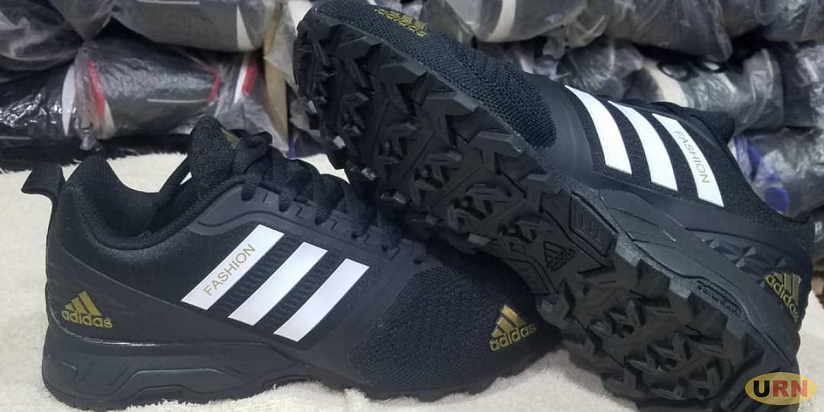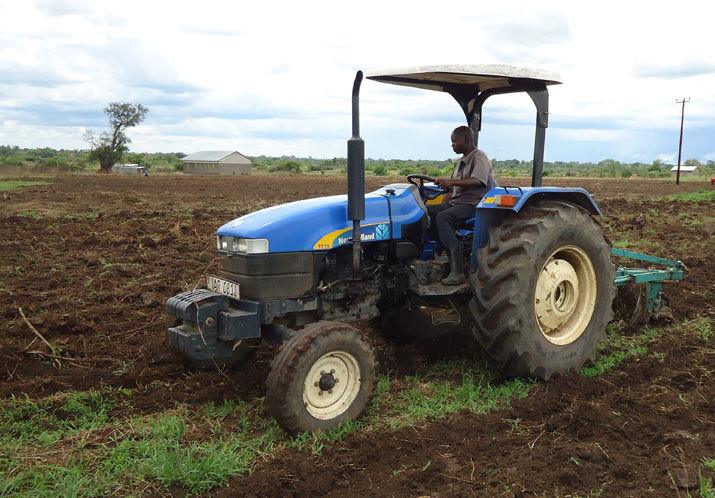Some of the shoes sold under Katende’s business
A third-year student of Makerere University has used the nationwide lockdown imposed to contain the spread of COVID-19 to venture into business which he promotes using online social media platforms.
Allan Katende, who is pursuing a degree course in Agriculture and Rural Innovation, looks forward to owning “the largest online business store selling shoes in Kampala City. He calls this an opportunity presented to him by the outbreak of the COVID-19 pandemic and the resultant lockdowns imposed since March 2020.
Katende now manages his Allan Kicks, an online shoe business and explains that he ventured into this after he was hard hit in the first weeks for the 2020 lockdown where he had to fully depend on his parents for survival.
Before the lockdown, he had been doing part-time work as an Usher for events in hotels such as Silver Springs Bugolobi and Speke Resort Munyonyo among others. From this work, he was assured of at least 10,000 Uganda Shillings to facilitate his airtime and transport costs to the university for lectures. The outbreak of COVID-19 early last year changed all this with massive job losses, closure of small businesses, schools and hotels among others causing individuals to experience critical financial crisis. Katende, now out of school, found himself at home with no money.
While many languished with limited options to deal with the new situation, Katende conceived an idea to start an online shoe business. This way, he thought, he would be sure to remain in business even during the lockdown.
When schools partially re-opened in March this year, Katende found that his costs for Internet data had doubled as Makerere University adopted online learning. As he was still coming to terms with this new reality, another total lockdown was announced in June. It was back to zero for him, with no school and no work on weekends. Meanwhile, he had to do online examinations in August which would require much more expenditure on a better gadget and Internet data.
It is at this point that Katende approached a friend who already owned a physical shop selling shoes. Katende started by using phone calls, WhatsApp and other online platforms to market the business.
Katende also used his bicycle to make deliveries to different clients.
Three months later, Katende had his own capital to buy his own stock. He has since expanded his business to over three shops that supply different shoe categories for ladies, men and children. One of the shops is Next Sandals in downtown Kampala.
With a sense fulfillment, Katende reveals that in such a short time he has made over 20 sales following the good will of friends that use their social media platforms to market his store besides clients recommending their friends to him. On a good day, Katende can make up to 100,000 Uganda Shillings.
Brooklyn Atuhaire, one of his friends that work with him in the hotel business, noted that venturing into online business is such a creative venture for Katende as it gives him time to attend his lectures as well as hotel work when it comes up.
Joseph Muyingo, a client at Allan Kicks commends the online shoe business as he notes that he is able to get his deliveries in the comfort of wherever he wishes around Kampala. He says he is not the kind that likes moving around looking for items.
Innocent Nuwamanya, who purchased shoes from Katende’s online store points out that despite the fact that his prices are a bit high for a university student like him, the desire to support a fellow student makes him buy from Katende.
Just like Katende, many other students from the University have had to come up with means to sail through the rough waters of the COVID-19 virus. The pandemic has since ravaged economies across the globe and killed over five million people. In Uganda alone, it has claimed the lives of more than 3,250 people since the first case was reported in late March 2020.
–URN





